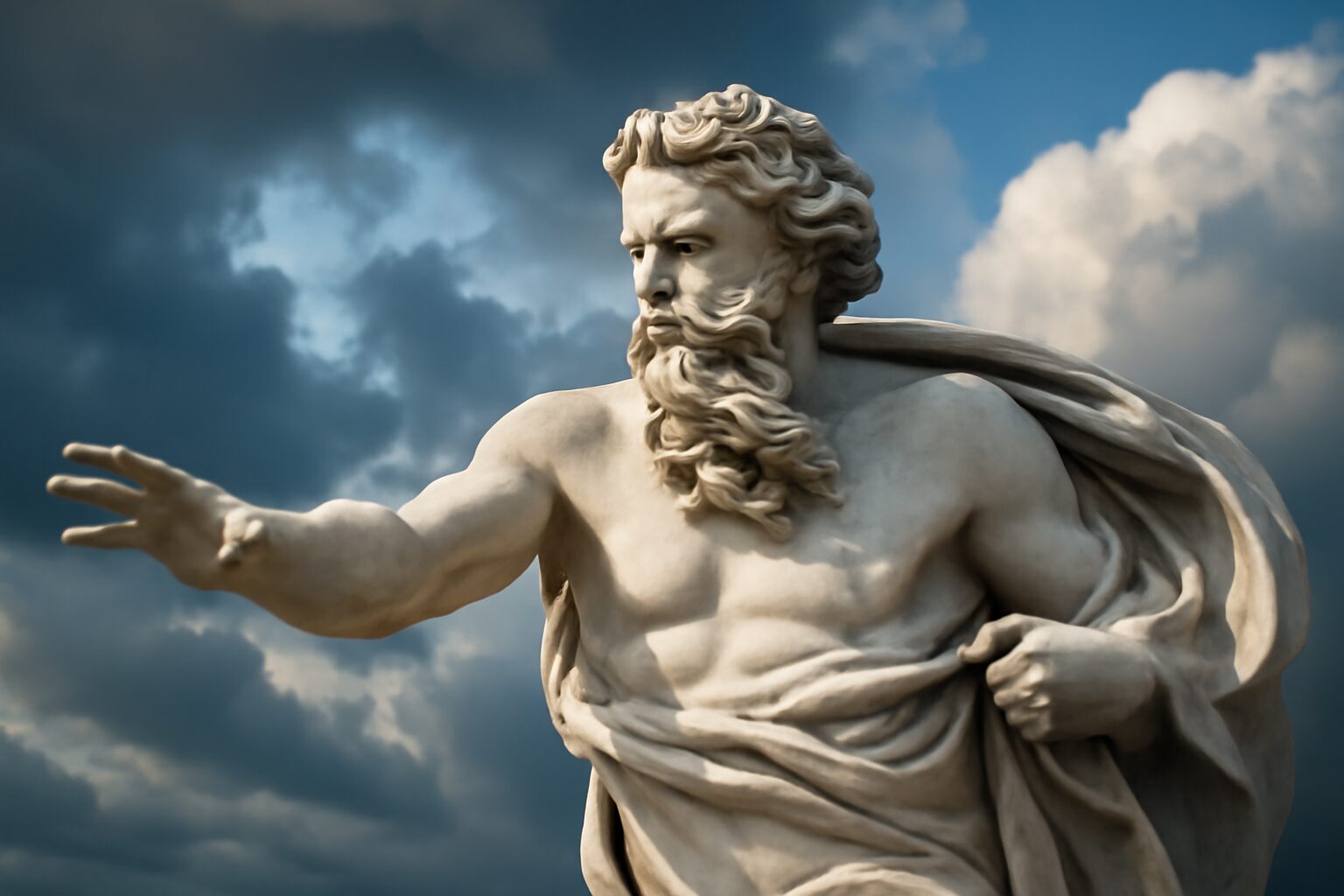Aparctias: The North Wind of Greek Mythology
In Greek mythology, Aparctias is one of the lesser-known but significant wind deities, specifically representing the north wind. Often associated with the god Boreas, Aparctias embodies the harsh, cold winds that blow from the northern mountains, bringing winter's chill to the ancient Greek world.
Origins and Role
Aparctias is one of the Anemoi, the collective name for the wind gods in Greek mythology. While Boreas is the most famous of the northern winds, Aparctias is sometimes considered a variant or a localized aspect of him. The name Aparctias derives from the Greek word aparktias, meaning "from the north," emphasizing his domain over the frigid northern gusts.
Powers and Influence
As a personification of the north wind, Aparctias was believed to bring biting cold, frost, and snow. Sailors and farmers both revered and feared him, as his winds could either aid navigation or unleash destructive storms. Unlike the gentler west wind (Zephyrus), Aparctias was seen as a force of nature that could be both beneficial—clearing the skies—or dangerous, freezing crops and making seas treacherous.
Mythological Connections
Aparctias, like Boreas, was often depicted as a winged, bearded man, clad in heavy robes to signify the cold he carried. He was sometimes considered the father of winter storms, working alongside other Anemoi such as Notus (south wind) and Eurus (east wind). In some myths, he was said to dwell in Thrace, a land known for its harsh winters, reinforcing his connection to the untamed northern wilderness.
Cultural Significance
Though not as widely worshiped as major Olympian gods, Aparctias held importance in daily life, particularly for those dependent on the weather. Farmers prayed for his mercy during planting seasons, while sailors made offerings to appease him before voyages. His presence in myth served as a reminder of nature's power and the Greeks' respect for the elements.
While Aparctias may not be as celebrated as Zeus or Poseidon, his role as a bringer of winter winds ensured his place in the rich tapestry of Greek mythology, embodying the unpredictable and often unforgiving forces of nature.
Alternative Names for Aparctias
God Name: Boreas (Greek)
Boreas is the Greek god of the north wind, often associated with Aparctias as both are wind deities. Aparctias is sometimes considered a specific aspect or epithet of Boreas, representing the northern wind.
God Name: Aquilo (Roman)
Aquilo is the Roman equivalent of the Greek god Boreas, the north wind. Since Aparctias is associated with the northern wind in Greek mythology, Aquilo serves as a Roman alternative name.
God Name: Aparctias (Greek)
Aparctias is an epithet or alternative name for Boreas, specifically emphasizing his role as the north wind. The name is derived from Greek, meaning 'from the north.'
Tales about Aparctias
Aparctias and Boreas: The Alliance of the North Winds
In the ancient tales of the sky deities, Aparctias was known as the chilling north wind, a force of raw, untamed cold. One winter, as he swept across the lands, he encountered Boreas, the god of the north wind himself. Boreas, mighty and formidable, saw in Aparctias not a rival, but a kindred spirit. Together, they forged an alliance, their combined gusts bringing snowstorms that blanketed mountains and valleys, testing the resilience of mortals and immortals alike. Their partnership became legendary, a symbol of nature's unyielding power.
The Frostbitten Challenge
To prove their dominance, Boreas challenged Aparctias to a contest: who could freeze the great river Achelous first? Aparctias, with his piercing breath, focused his energy, turning the waters to solid ice in moments. Boreas, impressed, acknowledged his prowess, and from that day, they ruled the northern skies in harmony, their winds singing a duet of frost and fury.
Aparctias and Chione: A Dance of Ice and Snow
Another tale tells of Aparctias' encounter with Chione, the goddess of snow. As he blew across the heavens, his cold breath caught the delicate snowflakes she crafted, sending them swirling in a mesmerizing dance. Chione, delighted by the way Aparctias gave life to her creations, invited him to join her in painting the world in white. Together, they crafted blizzards and gentle snowfalls, each a masterpiece of winter's beauty.
The Gift of the Aurora
In gratitude, Chione wove a special snowfall that shimmered with the colors of the dawn, a gift for Aparctias to carry on his winds. This collaboration gave birth to the first aurora borealis, a spectacle that lit up the northern nights, a testament to their icy partnership and the magic that arises when cold and snow unite.
Frequently Asked Questions
Who are the Aparctias in Greek mythology?
The Aparctias are lesser-known deities associated with the northern sky and winds in Greek mythology. They are sometimes considered spirits or minor gods connected to the cold northern breezes.
Why are sky deities important in Greek mythology?
Sky deities were important in Greek mythology because the ancient Greeks believed they controlled weather, seasons, and celestial phenomena that directly impacted agriculture, travel, and daily life. They represented powerful natural forces.
What can we learn from Greek sky deities like Aparctias?
These deities teach us how ancient Greeks explained natural phenomena through storytelling. The Aparctias specifically show how they personified different wind directions and weather patterns as divine beings.
How does the concept of Aparctias apply today?
While we no longer worship these deities, the concept shows humanity's timeless attempt to understand nature. Modern meteorology still uses directional wind names (like 'northerly winds') that echo these ancient personifications.
Are Aparctias the same as Anemoi (wind gods)?
No, while related, Aparctias are more specific northern wind spirits, whereas the Anemoi (like Boreas) are the main wind gods representing cardinal directions in Greek mythology. Aparctias might be considered minor wind deities or local variations.













